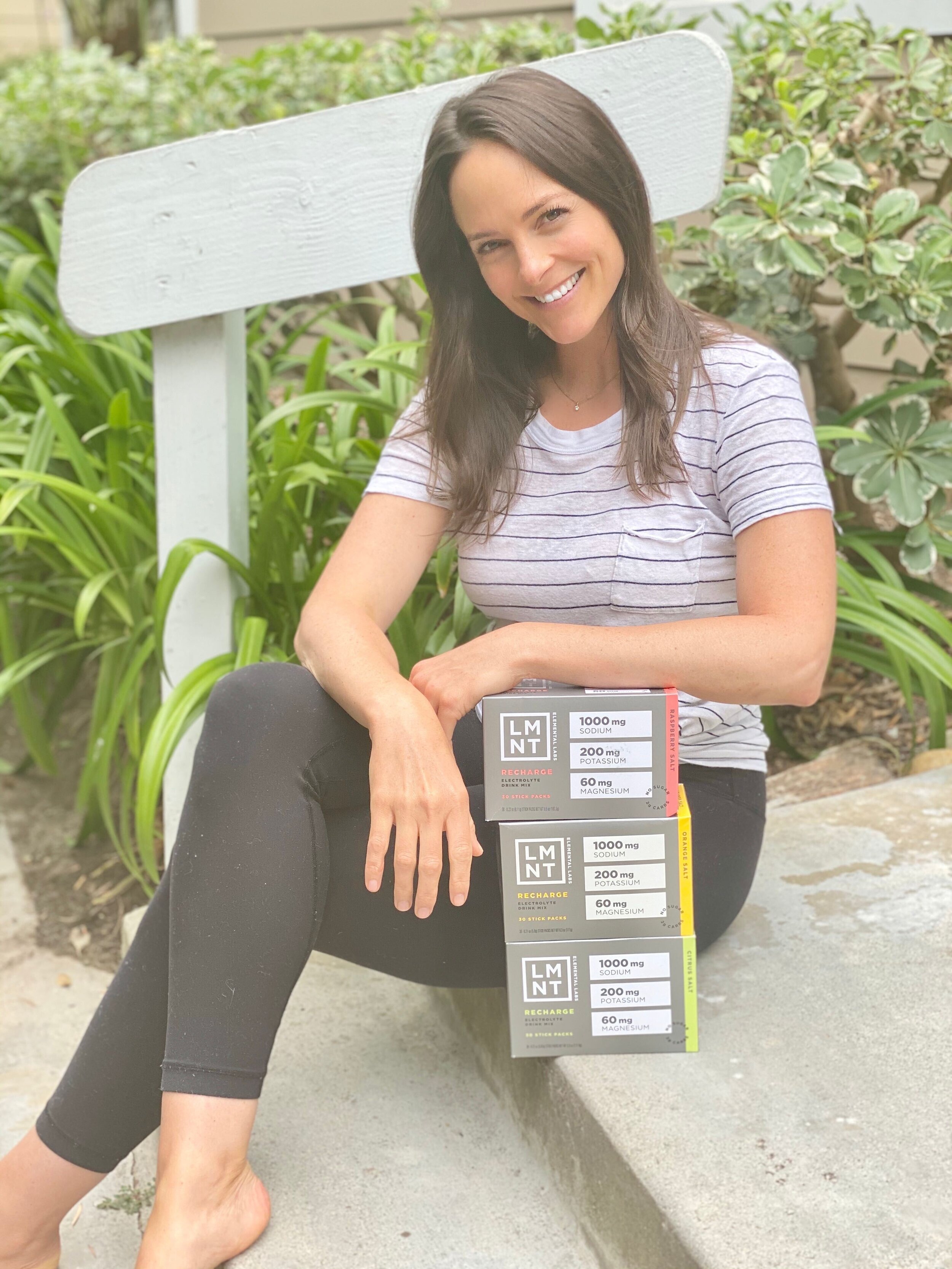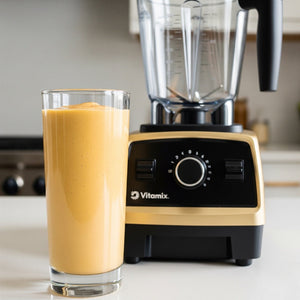
This page contains affiliate links and are asterisked as they appear.
Whether you’re a health and wellness devotee, an athlete, or even just a busy girl on the go, you’ve likely heard a little about the importance of electrolytes for your overall health. But what exactly are electrolytes and why are they important? As always, I want to make sure you truly understand the science of nutrition so that you can make informed and empowered choices to support your health. With that in mind, let’s take a look at electrolytes, what they do for us, and dive into the research a bit to understand them better.
Electrolytes are electrically charged minerals that allow messages to be sent through the cells of your nervous system (including your brain). Electrolytes also help your body maintain fluid balance, produce energy, and support strong bones. While there are several electrolytes - including sodium, potassium, magnesium, calcium, chloride, bicarbonate, and phosphate - most people tend to be deficient in just three: sodium, potassium, and magnesium. Here are some of the essential roles these 3 electrolytes play in your body:
Regulate fluid balance, blood pressure, and blood sugar levels
Promote the release of vasopressin (or antidiuretic hormone), which is related to both hydration status and circadian rhythms and can help you sleep through the night
Aid in energy production
Contribute to DNA synthesis
Help muscles contract (including your heart)
Increase the absorption of certain nutrients through the gut
May provide antidepressant effects
Improve performance in both endurance and strength training
You can get electrolytes through the food you eat and I always recommend focusing on including nutrient dense whole foods in your diet as a starting point for improving your health. Eating nutrients in this whole food form offers you a synergistic effect that can’t quite be replicated with supplements. That being said, from my years of private practice I know that even the most well planned diet can come up short in many nutrients and so supplements can be helpful.
There are also scenarios that can elevate your electrolyte needs. For example, if you follow a low carb diet or practice intermittent fasting, you may be losing more electrolytes at a higher rate than you realize. Another caveat to consider is the fact that diets built on nutrient dense whole foods will naturally be lower in sodium than the traditional Western diet that’s full of processed (aka high sodium) foods. While you’re focusing on keeping your meals clean and nourishing, it’s important to know that maintaining adequate electrolyte levels will keep you feeling your best.
Here are some electrolyte facts to consider:
Higher salt intakes are linked to less hypertension and lower risk of death.
High carb diets do not promote satiety. I’m all about meals that help you feel full and satisfied as well as regulating your blood sugar and hunger hormones. Research shows that meals containing protein, fat, fiber and greens (aka the Fab 4) are the ones that promote satiety while high carb diets only lead to surges in blood sugar and insulin, and more carb cravings that continue to fuel the blood sugar rollercoaster.
Low carb diets and fasting make sodium deficiency more common. Over 70% of dietary sodium in the American diet comes from packaged foods. In comparison, a low-carb diet that primarily consists of whole foods likely does NOT provide you with enough sodium. Low carb diets and fasting are also known to lower insulin response, which in turn causes your kidneys to excrete more sodium.
The “Keto Flu” is commonly caused by electrolyte deficiency. Headaches, muscle cramps, fatigue, and mood swings are all common symptoms you may experience when you switch to a low carb diet. These symptoms can be improved or even prevented by including enough sodium in your diet.
I’ve mentioned supplementing electrolytes a bit already, but want to make sure we’re on the same page as to how best to do that. When most people think about replacing electrolytes, they think of those electric colored sports drinks from their high school days. True, those contain some electrolytes, but not at levels that really support your needs. They also contain sugar, artificial ingredients, and coloring - all things that are unhealthy and unnecessary.
Instead, find ways to include these necessary electrolytes in your diet and choose supplements that are free of all those questionable ingredients that you don’t need anyways. To work for a more electrolyte-friendly diet, include good sources of each regularly. Here are some examples.
Potassium-Rich Foods
Salmon (624 milligrams per 6 ounce filet)
Spinach (271 milligrams per cup)
Banana (422 milligrams per banana)
Asparagus (271 milligrams per cup)
Cooked lentils (731 milligrams per cup)
Avocado (690 milligrams per avocado)
Dried apricots (2,202 milligrams per cup)
Tomato (292 milligrams per tomato)
Cantaloupe (428 milligrams per cup)
Magnesium-Rich Foods
Spinach (157 mg per cup)
Swiss chard (151 mg per cup)
Pumpkin seeds (190 mg per ¼ cup)
Beet greens (98 mg per cup)
Summer squash (43 mg per cup)
Sunflower seeds (114 mg per cup)
Black beans (120 mg per cup)
*Note, because nuts and seeds contain phytic acid (an “antinutrient” known for blocking the absorption of minerals) be sure to include a mix of these foods in your diet or try soaking and sprouting nuts, seeds, beans/legumes, and grains.
Calcium-Rich Foods
Kale (94 mg per cup)
Sardines with bones (347 mg per 3.2 ounce)
Sesame seeds (351 mg per ¼ cup)
Broccoli (62 mg per cup)
Cheese (204 mg per 1 ounce)
*Dairy is a common source of calcium, however it’s not the only or best source. I typically limit my own dairy consumption to small amounts of raw cheeses or high quality cottage cheese, and recommend the same for my clients.
Phosphorus-Rich Foods
Scallops (483 mg per 4 ounce)
Cod (391 mg per 4 ounce)
Sardines (445 mg per 3.2 ounce)
Soybeans (421 mg per cup)
Lentils (356 mg per cup)
Chicken (259 mg per 4 ounce)
Beef (240 mg per 4 ounce)
Things get a little tricky when we talk about sodium. Most whole foods are actually low in sodium. Traditional medical recommendations would have you thinking this is a good thing, but more recent research actually shows that higher sodium intake is more beneficial to heart health than lower intakes, and includes markers like lower blood pressure and fewer cardiac events like heart attacks and strokes. That means salting your food and including sodium in your electrolyte supplements is essential for so many of us.
To make the most of your electrolyte supplementation regimen, choose products with minimal ingredients from trusted sources. One of my favorite ways to do this in my own life is with LMNT hydration packets. With only sodium, potassium, and magnesium - no sugar, gluten, fillers, or artificial ingredients - LMNT is keto, low-carb, and paleo friendly and the perfect addition to your routine whether you’re a professional athlete focused on optimizing performance or a busy mom focusing on the health of herself and her family.
Right now, LMNT* is offering Be Well by Kelly followers an exclusive deal - one LMNT Sample Pack for the cost of shipping ($5 for US orders)! Each sample pack includes 7 packets of LMNT (1 of every flavor!) and the offer is limited to one time per customer.





